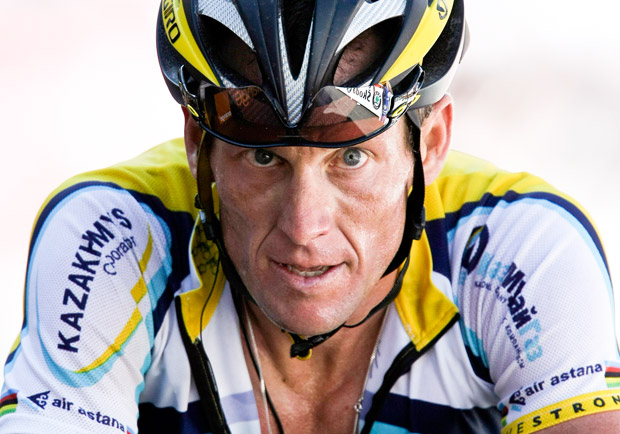It's tempting to look smugly down our noses and find satisfaction in Lance Armstrong's downfall. Yes, he used illegal drugs to gain a competitive advantage in the sport of cycling. He had plenty of company. What bothers us as much as the "juicing" is the steady train of deception he fobbed off on us fans who followed his career with such interest. We feel duped and disappointed. We wanted a hero who not only beat cancer, but who also beat the world's best cyclists on a fair and level playing field to achieve what no other athlete had achieved. Now he joins the sad and sorry ranks of so many elite athletes whose desire to win drove them to dishonesty.
But set all self-righteousness aside, and ask whether or not there's a little bit of Lance in each of us. Few of us are world-class athletes, or world class anything, for that matter. Yet we too live and work in environments where the temptation to cut corners to gain a competitive advantage over others is ever present.
Let me point a finger at my own part of the world: academia. A spate of recent articles reports the rise in fudged or fraudulent data. Many academicians work in publish or perish institutions, where competition for grants and funding is fierce, places to publish esoteric scholarship few, and where promotion and tenure depend on the length of your CV. The drive to be part of the academic elite has even trickled down to the student level. Students "juice" by using Adderall and other stimulants to heighten focus and to lengthen the time they can devote to study. And the articles chronicling the growth in cheating in our schools indicate that the cheaters are in the majority. It looks as though the competitive juices (and I don't mean the ones that come in a bottle) flow through us strongly.
How pervasive are the temptations to live like Lance in the corporate world? Cheating to win the battle of the bottom line in business is a commonplace. Patent infringements, corporate spying, jiggered accounting, inflated sales reports, use of substandard parts to shave costs, and other practices make many businesses and their executive personnel as guilty as Lance. And speaking of "cooked books," let's not forget the creative math that goes on every April 14th as we try to get ahead financially. Who wants the shabbiest house on the block? We have the Joneses to compete with, after all.
While most of us will never compete at elite levels in any sphere of competition, maybe, just maybe, our children will. If only my child participates in year-round soccer, gets private coaching, attends the right sports camps, and plays on the right traveling teams, he or she will have a shot at athletic stardom. Surely, you say, there's no dishonesty, no cheating, in helping our children to be their best. Perhaps not, except when it deprives children of the chance to discover what may have been a preferred passion, or when our children serve as our athletic surrogates, through whom we live vicariously.
At both elite and pedestrian levels, cheating is often motivated by the underlying desire to have worth as a person. Nothing wrong with that. But when coupled with the belief that we have worth as persons only insofar as we are winning in our various fields of competition, it sows the seeds of pride and envy. We cannot abide being bested in the race for looks, popularity, wealth, athletic success, power, or any other arena of competition. To ground our worth in such fleeting attempts at glory should seem silly to Christians, especially when we recall that we are created, sustained, and saved by the almighty God of the universe. Alas, we all too often live in forgetfulness of this truth.
Jay Wood is professor of philosophy at Wheaton College, and co-author of Intellectual Virtues: An Essay in Regulative Epistemology (Oxford University Press).
See last week's related article, "Lance Armstrong Has Lost Nearly Everything."








